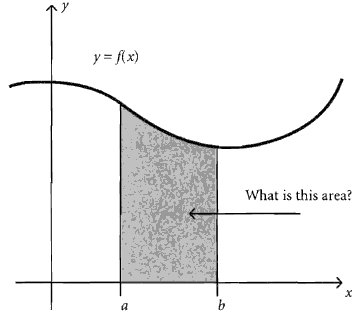|
| |
|
| |
|
|







|
|
TCHS 4O 2000 [4o's nonsense] alvinny [2] - csq - edchong jenming - joseph - law meepok - mingqi - pea pengkian [2] - qwergopot - woof xinghao - zhengyu HCJC 01S60 [understated sixzero] andy - edwin - jack jiaqi - peter - rex serena SAF 21SA khenghui - jiaming - jinrui [2] ritchie - vicknesh - zhenhao Others Lwei [2] - shaowei - website links - Alien Loves Predator BloggerSG Cute Overload! Cyanide and Happiness Daily Bunny Hamleto Hattrick Magic: The Gathering The Onion The Order of the Stick Perry Bible Fellowship PvP Online Soccernet Sluggy Freelance The Students' Sketchpad Talk Rock Talking Cock.com Tom the Dancing Bug Wikipedia Wulffmorgenthaler |
|
bert's blog v1.21 Powered by glolg Programmed with Perl 5.6.1 on Apache/1.3.27 (Red Hat Linux) best viewed at 1024 x 768 resolution on Internet Explorer 6.0+ or Mozilla Firefox 1.5+ entry views: 1926 today's page views: 708 (118 mobile) all-time page views: 3400693 most viewed entry: 18739 views most commented entry: 14 comments number of entries: 1228 page created Sat Jul 12, 2025 23:39:05 |
|
- tagcloud - academics [70] art [8] changelog [49] current events [36] cute stuff [12] gaming [11] music [8] outings [16] philosophy [10] poetry [4] programming [15] rants [5] reviews [8] sport [37] travel [19] work [3] miscellaneous [75] |
|
- category tags - academics art changelog current events cute stuff gaming miscellaneous music outings philosophy poetry programming rants reviews sport travel work tags in total: 386 |

| ||
|
Of Bungee Chairs Monday: Walked to vhive at Taman Jurong to break in my running shoes, and to check out their range of chairs; I figured I owed my butt one, for all the unstinting support it has provided me all these years, not that it had much say in the matter. Within minutes, I had picked out a bungee "visitors chair" for S$89, after considering that wheels would tack some S$70 on the cost, armrests a further S$25 or so, and a bit of cushioning, an additional S$100. Well, there's not much point in rolling about in my room, my hands will be engaged with the keyboard and mouse 99% of the time, and I tend to lean forward anyway. Also, legged chairs are just that bit more stable, when I do lean back - four legs good, five wheels bad! The item appeared popular enough, as the store didn't have any in stock other than the display model, which meant I couldn't lug it home on my back. A pity.  Bert wuz here Passed by my old kindergarten on the walk back, which was probably the first time I had returned since I graduated about twenty years ago. I don't recall too much about my time there other than a few scattered memories, but it appears not to have changed much, though they do have a website and a Facebook page now. Hmm, the uniforms are still the same as before... The purchase brought my weekly expenses to (pulls out Google calculator) about three hundred bucks, eleven of which were due to library fines. Ouch. Realeconomik One of these books was ECONned by Yves Smith. While hardly a short book (see a For Dummies summary), the basic message that I got out of it, was that a lot of economics is bullshit (as was indeed emphasized in the summary above). Let me try to phrase the ideas in my own words. To begin with, in an Introduction To Economics class, students will get acquainted with the Law of Demand, which says that people buy more of something when it's cheaper, and the reciprocal Law of Supply, which says that people make more of something for sale when it's more expensive. Like, well, duh. Actually, even something as fundamental as this isn't completely true, but let's move on. The Laws of Demand and Supply interacting to result in an equilibrium price for a simple good is one very simple model of how the world works - and by-and-by, it often works, as many individuals can attest to, whether in the role of consumer (warehouse sale on!) or producer (a rival firm is offering me a higher wage [price], time to jump ship). The trouble arrives when economics attempts to tackle more and more complex problems - Smith argues that even a very basic textbook neoclassical model, involving just one individual and two goods, is not wholly accurate, and it only get worse when more people are added (in Appendix I of the book, previewable on Amazon.com for the interested). Well, this might be alright - a model is supposed to be an abstraction of the world after all, and one cannot reasonably expect it to be as predictive without itself becoming the world; it, like a map, is useful precisely because it condenses the most useful information (which of course may depend on the application). The problem is that economists, and probably more importantly, financial experts (the two categories do overlap), all too often get it wrong - and the mistakes are of a magnitude that suggests that the models themselves are next to worthless. One example was given of 25-sigma events (as predicted by a model) happening several days in a row, which is about as likely as my hamster spontaneously morphing into a bunny. Therefore, either the traders who cooked up the model were spectacularly unlucky on a hambunny scale, or their model was hopeless. Guess which is more likely? Smith mentions the quite convincing A-Prime/C-Prime Theorem by Donald McCloskey (who, seeing as he is now Deirdre, might have been depressed sufficiently by its implications to undergo a change in gender):
i.e. an economist can often derive whatever conclusion he wants, by subtly tweaking his assumptions. Shades of the old mathematician joke: "Simple, first we assume that cows are spherical...". Sadly, such assumptions are rife in economic theories - take the common starting point of consumers who know exactly what they want, at all times, and can arbitrage infinitely to cater to all eventualities from now till the end of time. Perhaps not many have realised that this is about equivalent to saying "First, assume that every person is an omniscient God...". And then theorists are surprised when it doesn't pan out in real life. Snide remarks aside, such assumptions can still be useful, if they turn out to be close enough in practice - consumers may not perfectly predict their future tastes, but it's not unreasonable to think that they have a general idea; they might not indefatigably pursue every available opportunity, but surely they do make decent decisions, which are possibly even near-optimal given admittedly limited information. It does indeed sometimes work out, sorta. Unfortunately, as numerous financial crises prove, models crash and burn badly at other times. The core observation is this: In the purer sciences, experts are expected to be, and indeed are, certain, especially where applications are concerned. A civil engineer would, and should, be criminally liable if a bridge collapses; physicists would be brought to account if a nuclear power plant meltdowns (assuming it's not through operator negligence).  Left: 99% chance of being sued till pants drop Right: Good chance of leaving with golden parachute In constrast, economists can get promoted and be awarded Nobel Prizes without getting blasted by China (whose Confucius Peace Prize got off to a laughable start when first awardee Lien Chan didn't even bother to turn up) even if major predictions don't come to pass (and as long as they have passionate refutations couched in elegant language, which is never in short supply), and a stockbroker would make a good profit if he were consistently right even 51% of the time (and probably be an absolute legend if he could push that up to 60%) The thing is, economists are, as a profession, probably not significantly less clever than physicists or engineers; however, what they study is, in a sense, much, much harder. The aggregate behaviour of human beings can hardly be compared to that of molecules. Scientists also have the luxury of toying with their experimental material - economists and other social scientists generally do not. But where a physicist can look at a seemingly simple problem (e.g. the final position of a billiards ball on a near-frictionless table) and throw his hands up and say outright that he can't reasonably predict what would happen in reality, financial experts, and to a slightly lesser extent economists, can't quite do that. This is because any physicist claiming that ability would be immediately shot down by his colleagues, while any financial expert who so much as shrugs would be clambered over by other experts who are sure as day that rising wages in Mongolia will cause the price of gold to rise (or fall). I believe that, deep down, most economists and analysts know that the "big" questions that laymen are interested in - is the economy recovering, or is it a double-dip recession, and what can/should be done? - are unanswerable, at least with any large degree of confidence ("well, letting the dollar depreciate gracefully should work... at least if China's political leadership remains stable for the next decade and the Euro survives the bailouts and Japan's demographics improve and..."). Of course, they do sometimes get it right, but when that happens the old adage of a stopped clock (and moreover one that only shows AM or PM) comes into mind: "Yes, the Asian market indices fell this month, exactly as my model predicted... no, I believe Kim Jong Il getting out of the wrong side of bed and shelling South Korea did have a tiny impact, but it doesn't detract from the grand flow of my theory...".  See, oil futures rose as my consultancy firm said... and yes, we foresaw Iranian missile technology too! (Source: undenk.com) The bottom line here is that, for such a complicated system as the global (or national) economy, there is precious little direct evidence that accurate models depending only on reasonable assumptions exist, and even if they do, it would be hard to believe that the undoubtedly numerous variables they would have to depend on are known. Arguments ("Is a minimum wage good for country X?") are a dime a dozen, and historical accounts studied ad nauseum, but there is no guarantee that they are applicable in the same way. For all the numbers and equations that modern economics has become enamoured of, it was always a very human "science". Basically, the honest answer in economics is often, at best, "This could happen, but it hinges on this and this and... which basically means I dunno", and at other times, simply "I really, really don't know". Problem is, a lot of academic research appears to be focused on the first part - the crafting of beautiful and extremely intricate mathematical models that may or may not bear any resemblance to reality - and a lot of financial policy-making and wheeling and dealing seems to consist of immaculately-dressed and supremely confident men appropriating these pristine models, and not caring too much as to whether they are misapplied in the less-refined real world.  What happens to a honest researcher in a policy think-tank (Source: xspblog.com) A pretty famous example is the Gaussian copula model, popularly blamed for nearly bringing down the global financial system. Essentially, it allowed complex correlations to be quantified, albeit with very big ifs, which were quite blithely ignored if doing so would increase profits (as was the case). This was basically a case of being (willingly) blinded by math. Previously, the nice people working in the banks admitted that they didn't know how (or rather, didn't have the imagination and bluster to cook up a convincing pretext) to measure certain risks, and therefore behaved more conservatively. As long as their competitors thought likewise, there wasn't too much pressure to break out of the mould. But then Pr[TA<1, TB<1] = Φ2(Φ-1(FA(1)),Φ-1(FB(1)),γ) burst onto the scene, and somebody somewhere incorporated it into their trading strategy, and almost certainly made big bucks. Others followed suit - it would cost too much not to - and we got the Big Crash. Now, on to the bad news as I see it. Will this shit happen again? I would guess, almost assuredly, in the same way as I can't see more straightforward bubbles and manias going away. Gaussian copula or Dutch tulips, Tokyo real estate or dot-coms, these things will happen simply because some people will stand to profit - big (and a lot of people aim to be these some people). A lot of the time, perhaps more than is recognized, new innovations and theories merely serve as the flimsiest of excuses to make money. When the next big bubble comes along, mostly-honest men earning a respectable living will look around and see people they had always regarded as lazy or undeserving bragging about their stock market/real estate/pokémon investments, which had doubled/quadrupled/risen hundred-fold in the past year/month/day, and how they are now sitting on a fortune that a mostly-honest guy (wink wink) could never amass in ten lifetimes of tedious nine-to-five work. As has happened so many times before, some - not all, but some - of these men will be tempted to dip into the bubble, which may well be a rational, if irresponsible, thing to do. The pass-the-parcel then begins, and eventually some are left holding the baby and are ruined; however, those who got out on time are wealthier for it. It is absolutely imperative to remember that not everybody loses in a bubble or crisis! Sure, this sort of profiteering may not be societally beneficial, but does anyone believe that the average banker, trader, analyst, or even man-in-the-street has the validity of economic models or the general well-being of the economy foremost in his mind when making private profit-and-loss decisions? If so, I have Cavenagh Bridge to sell you for only S$10000 down. And stamp duty exempt. For all the tough talk of regulation and whatnot, the bottom line is that the vast majority of the people who were directly or indirectly responsible for the mess (though one could argue that many of them probably couldn't do much other than hop onto the bandwagon) didn't get much more than a slap on the wrist, if at all - being out of a job after years of hefty bonuses was about the worst of it. Boo-hoo. And no, remorse was never on the agenda ("What? Us Wrong!?!"). So, will something similar happen once the next boom rolls along, and some financial whiz invents the Student's t-distribution Pancake Pizza function? Heh heh heh... [N.B. Given that t-distributions do produce heavier tails than Gaussians, and the handling of rare events was where some economic models fell flat, this proposition might not be as big a joke as it should be] It's Not Hopeless Yet! Struggling or conscience-stricken economists might seriously consider a switch to another field. A blog post dating from 2007 recently made my Facebook feed, and it was about a paper entitled "A mathematical model for the determination of total area under glucose tolerance and other metabolic curves", published in 1994 in Diabetes Care, by all accounts a very respectable medical journal. All well and good, but what made it Facebookable? Shortening the title gives "A mathematical model for the determination of... area under... curves". Ring a bell?  How about now? (Source: education.com) It transpired that the researcher, M. M. Tai, had independently rediscovered integration! Then again, rediscoveries are par for the course - Newton and Leibniz did much the same only a few centuries ago. What's a paltry three hundred years in knowledge transfer between fields? Naming it Tai's Model might, however, be going slightly overboard. YA RLY. One might easily imagine that all the reviewers had felt that another one of them would have let the author down gently. Or that, well, it was actually a significant addition to the community. The latter seems to be the case, as the paper picked up 75 citations in thirteen years (up till 2007, when the blog post appeared) - which is much more than what many papers ever get. As if to prove that all this was no accident, a quick check with Google Scholar shows that it has 137 citations as of today. This has made me extremely curious as to exactly how medical personnel determined areas under curves before Tai's contribution, but let's just say that I'm plenty relieved that they're using Tai's Model nowadays. Then again, to be fair, how much does your usual mathematician know of diabetes? And Scrollwheel Cares Friday: Arrived at NUS in the morning for a free eye screening. After running a battery of tests, including getting air blown into my eyes to measure the intraocular pressure and getting a pachymeter come very close to them (neither experience which I enjoyed), I received some pretty detailed results, and was impressed to find that the myopia readings agreed exactly with those taken about a year and a half ago. Encountered perhaps the most bizarre bug ever - Google Chrome suddenly stopped responding to upwards scrolling with the mouse scroll wheel, which led to a lot of grief with my DeathAdder before I thought of testing the scroll funtion in Windows itself. Who would have guessed it to be a browser-specific issue? Notably, this bug had made an appearance about two years ago, which suggests that some old code may have been reused. Happily, the good folk at Google have since gotten it fixed. And last week's pretend punting didn't come off. Let's try again. P$1067/P$1350 now. P$50 on Newcastle to draw Liverpool (at 3.35) P$50 on Tottenham to draw Chelsea (3.35) Next: Tis De Season To Be Hammy
|
||||||||
 Copyright © 2006-2025 GLYS. All Rights Reserved. |
||||||||